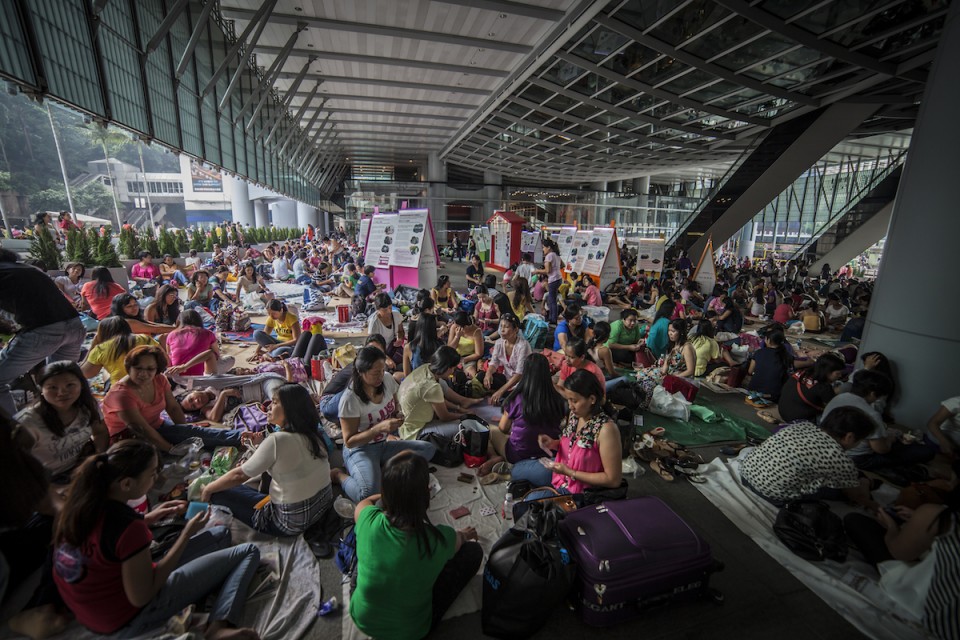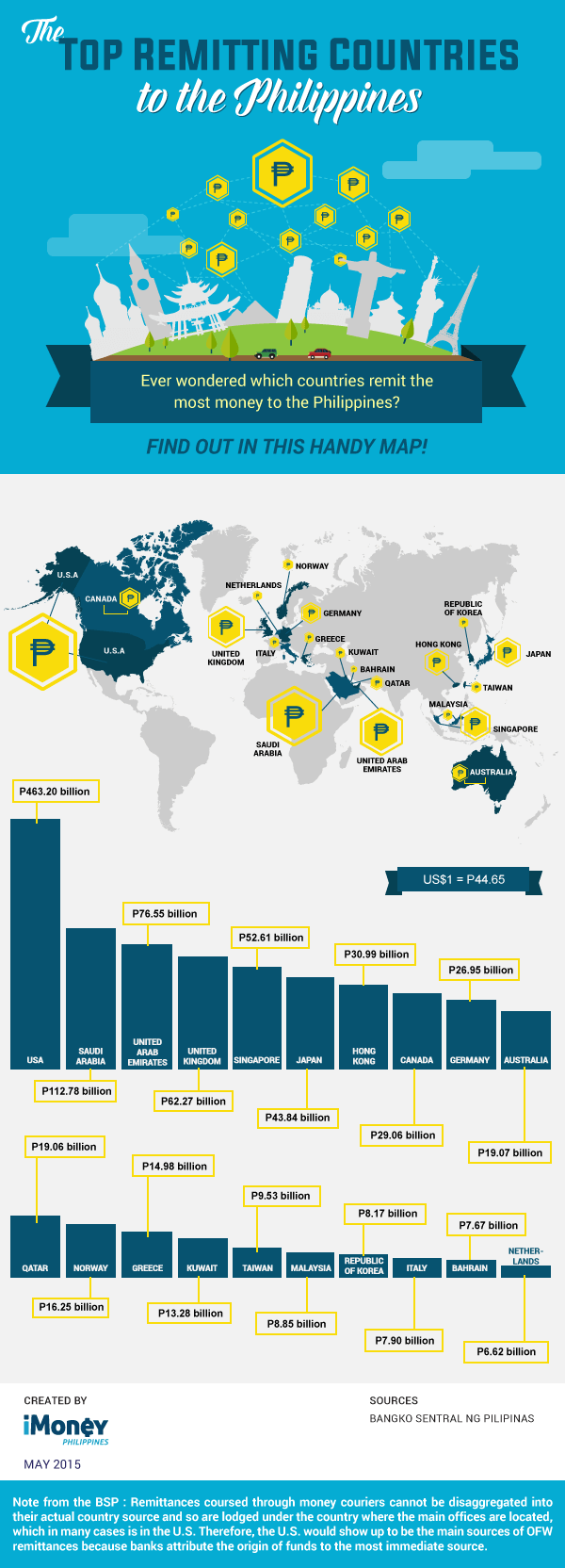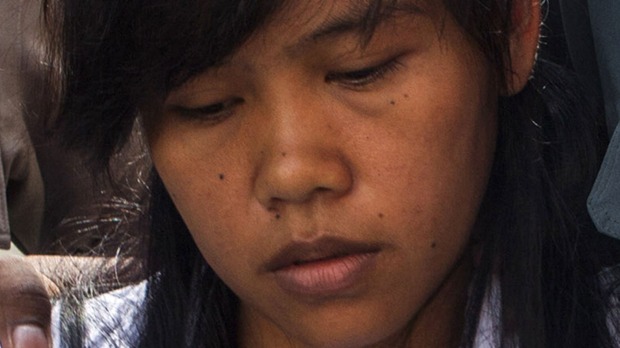
When Ferdinand Marcos implemented The Labor Code of the Philippines in 1974 he opened the door (some could argue the floodgates) to people from the South East Asian archipelago to go abroad to seek employment. This decision was made in the wake of economic problems in the Philippines, not the least of which was the collapse of world sugar prices. For most of the previous two decades sugar had accounted for 20% of the country’s exports and as the decline in demand led to a subsequent glut of sugar in the market it was necessary for the palace to take action to save the economy.
The timing was good, it was in the 70s that countries like Singapore and territories like Hong Kong were finding their financial feet and the increase in their prosperity fueled a demand for domestic helpers. Domestic helpers are not the only OFWs from the Philippines, there are also a lot of professionals in education, healthcare and the maritime industry, but domestic helpers is the problem I’d like to cover in this article.
It is one that is extremely close to my heart. It was in 1983 that I was first introduced to domestic helpers, my father had secured a position in Singapore and – off we went. The differences between life in the Antipodies and life in South East Asia as an expatriate were pretty stark. One of the major differences, and one which had a huge impact on me at the time (I was 3) was that we hired a maid.
OFW domestic helpers had a huge impact on me as a child
Over the course of the next 10 years there would be a total of three domestic helpers from the Philippines that were a part of our family. My parents were upwardly mobile and career minded, and at an age and in a place that meant it was time to make hay. As they pursued their careers we would end up leaving Singapore for Hong Kong where we stayed for nearly 7 years. I would be raised, nurtured and cared for by women from the Philippines over this period of my life.
I never saw anything wrong or strange about it really. As I was so young when we’d moved to Singapore I rapidly became far more at home in Asia than I was in Australasia. I was to learn my first Asian language by the time I was 5 and to do amazing things like drive from Singapore to Kelantan in Northern Malaysia (before Malaysia had highways) up dirt tracks and state roads. The purpose of that trip? To visit the rubber plantation that my Irish grandmother had spent her younger years after her parents had been forced to leaved the Dutch East Indies (where she was born) due to instability in the colony. While that’s a trip I’ll never forget, it’s also a little off topic so I’ll save it for a travel article.
As I was saying, I never saw anything wrong with the practice of employing women from underprivileged backgrounds to run our households. Not until one day when I was 6 or 7. I went out the back to the maid’s quarters in our apartment in Hong Kong’s Mid Levels to find Maravic who was our helper du jour. Only to discover this woman, who to my young mind was a part of our family and not an employee, in rivers of tears. She had had news from Cavite that one of her children was sick. This was the first time that I’d been forced to consider that a part of Maravic being in our lives was to take her away from her own children.
Later in life I would live in the Philippines, travel throughout South East Asia – including some pretty remote parts of Indonesia – and I would have the opportunity to see the problem from the other side. I would realize that there is very little good that comes of it and I would even, if only for a brief spell, end up volunteering to help OFWs who had problems with their employers in Hong Kong. Once you begin to see things from the perspective of the families that are left behind and the women sleeping on kitchen floors to care for someone else’s kids – you start to understand things a little better. All the time I was reminded of Maravic, that day in the mid 80s, standing in our laundry area in Hong Kong (she had a small quarters that ran off it) telling me about her sick son.
Eventually my journey would take me to the Philippines, as I’ve said before it is a place I love dearly, and which gave me the opportunity to really see things from the other side of the coin. You see the mother of my child was a maid in Russia for 2 years just before I met her, she had trouble obtaining the necessary clearances in the Philippines so ended up having to go to Thailand on a tourist visa and then on to Moscow without an appropriate work permit. While documentation was eventually arranged she has often told me about how scary it was being in Russia undocumented. Her sister is now in Hong Kong and her sister’s children regularly come and stay at the house with us. Complete with behavioral problems, tears and everything else that goes with having an absent parent. An absent parent who is not at war, nor at sea, nor making very much money. An absent parent who is as heartbroken as her children but did not see that she had any other options.
How the numbers stack up
In 2015 the Philippines received just under USD $26 billion in offshore remittances. To put things in perspective the BPO call center outsourcing industry is only forecast to hit USD $25 billion this year (that’s revenue, not profit). This money isn’t all from domestic helpers but with the UAE, Hong Kong and Singapore all featuring in the top 10 remitting countries one could probably assume a very good portion of it is. Here’s a really good infographic from iMoney that shows the breakdown:

As the disclaimer at the bottom says – remittances forwarded through companies that are headquartered in a country outside of the one where the funds originated are attributed to the country where their headquarters is based. One wonders if Western Union in general skews the position of the United States in these statistics as it is one of the most widely used remittance providers in every country I’ve ever spent time in that employs OFW helpers.
So why is this a problem?
This is a problem because the women often find themselves in extremely precarious positions while they’re overseas. In fact, for many, such as Mary Jane Veloso, their fates are sealed before they leave the country. While Mary Jane’s case was made famous, arguably as a result of the fact that she was scheduled to be executed along with members of Australia’s infamous Bali 9 syndicate, she is just one of 92 people from the Philippines who find themselves on death row around the globe.

Mary Jane was extraordinarily lucky to get a stay of execution, but as the Indonesian government has repeatedly said, no matter what the outcome of the case before the courts in the Philippines, she still took drugs into Indonesia and will still be executed. Her lawyers have said that a guilty verdict in the Philippines could possibly form the core of an appeal for clemency, but her appeals are exhausted and as things sit she will still face a firing squad. Arguably it was diplomatic wrangling from Aquino and the status of the Philippines as a partner in ASEAN that even got her the stay that she did.
Mary Jane was trafficked, she trusted a local recruiter who then took advantage of her and sent the mother of two from Cabanatuan in Nueva Ecija to hell in return for money. I’m not suggesting for a moment that this is the norm, there are hundreds of thousands of domestic helpers employed abroad who never have an experience anything like this. I will say that one is too many and I lay the blame squarely at the doorstep of Malacañang.
So what is the solution?
The solution is domestic opportunity. It is interesting that both the Philippines and Indonesia have made broad ranging announcements in the past few years that they will stop domestic helper exports. I use the word exports because that is exactly what they are. In a country with huge natural resources, more efforts should be made to exploit what is here, and less time should be spent exporting people to be slaves.

Comments are closed.